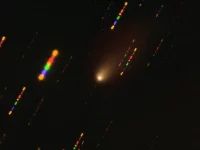Culture. Yrsa Daley-Ward’s Powerful, Poetic Distillations

BONE. A collection that showed the possibilities of poetry on the internet. Every so often, alarm bells get rung about the possibility that poetry is dead.
These arguments usually get stuck in the grooves of what poetry should and shouldn’t do; whether its moment has passed; whether it has enough of a contemporary readership. Such critiques tend to miss the upside of poetry’s shifting entry points, which have made it, as a language, all the more readily accessible, and global. This change in access includes, of course, the internet and the way poets have figured out how to exist on it—particularly on social media sites, where their work can reach thousands of people with immediacy, without needing to be accepted to a journal or undergo a waiting period before publication.
Yrsa Daley-Ward is, in a sense, one of these poets. Born in England to Jamaican and Nigerian parents, she creates aching and touchable work that illuminates life’s interior emotional movements with nuance and long-lingering imagery. She’s also among those—like Rupi Kaur and R.M. Drake—who have figured out how to use Instagram to their advantage. (I hesitate to use the term Instagram poet, as it has become a dismissive way to address practitioners who use the platform to extend their reach.) Daley-Ward’s debut collection, bone, was first self-published in 2014 and re-released this fall, with additional poems and an elegant introductory essay.
In his foreword, Laymon hits on one of the reasons bone resonated for me this year: Poetry isn’t always easily punctured, or made sense of, and there is a particular beauty to the moments when it can be. Laymon describes not understanding, as an 11-year-old, the poems in the the Book of Psalms, or who they were meant to be speaking to. He writes about the moment he did discover poetry (“I’d been given poetry at 16 when all I could think to do was steal all the wheat bread, white bread, cinnamon rolls, pitas, and hot dog buns from the bread truck after the Rodney King verdict”) and praises Daley-Ward in turn for knowing how to give poetry—and in the process, herself—to the reader.
Part of the way Daley-Ward does this is through her Instagram account, with its more than 120,000 followers. Her main means of engagement is language, some of it uplifting (a screencap of a tweet from June reads, “don’t be fooled, the world is still gorgeous”) and some of it brutal (a photo of the end of the poem “This Was the Story” reads, “When I came back, our house was gone. Sometimes exactly what you want not to happen happens anyway”). Using a platform without bowing to it is something many young poets are grappling with; it takes skill to do this and remain true to the work. It’s to Daley-Ward’s credit that what makes her writing shine in screenshots also makes it shine on the page. She has a knack for getting directly to a story’s heat-point, and once there, to distill the emotions within it down to a line or two. This plays well on the internet, but even better—and perhaps more surprisingly—in the fuller context of bone.
Take the sprawling “It Is What It Is,” which—like most of the poems in the collection—is written as a single narrative, broken into sections, over 10 or so pages. The piece centers on the poet’s childhood and parents and reads like a much shorter poem than it is, largely because of what seems to be Daley-Ward’s superpower: her ability to cluster powerful lines into wide pockets of story that make for sharp and unexpected moments. “I am tired all of the time lately, but am not sleeping. When I do, I have strange dreams in which neither of my parents are dead,” she writes at the outset of one section, lighting on an eerily relatable image.
Most of bone’s work is structured in flowing prose blocks, or as spaced-out lines that drift down the white space of a page. But what the collection lacks in diversity of form, it makes up for in the layered ingenuity of its narratives. While “It Is What It Is” straddles the line between short story and prose poem, “Some Kind Of Man” decidedly takes on the mantle of the short story: Its 17 pages are full of dialogue and winding, precise imagery around the dissolution of a relationship and a friendship between two characters, Samuel and Benny. With Samuel, Daley-Ward lushly paints a grating character who feels worth rooting for anyway. Just after a scene in which he is caught cheating on his partner with another woman, Daley-Ward adds: “He was the kind of man who, when you woke up in the middle of the night itching on the joints of your fingers and your legs and jaw line because the mosquitoes had been at you again, would rub cold ointment into your skin.” His goodness, the poet suggests, overlaps with his badness; the two are inextricable from each other.
Ultimately, though, the book is about Daley-Ward, in that it honestly excavates a writer’s life, not simply presenting pain, but also showing an individual working through it. The poem “Lipsing,” for example, is a simple, yet expansive nugget about how narratives get formed: “Some lovers look you in the mouth / Right clean in your mouth / And your story comes, / Running.” In its final pages, bone takes on a triumphant, if weary, tone, with a last poem called “Dankyes (Mwaghavul),” which suggests, in the name of this impressive debut, both an end and a beginning:
Today is the first day
Of the rest of it.
Of course there will be other
First days
But none exactly like this.










